September 25th, 2016 — 10:53pm
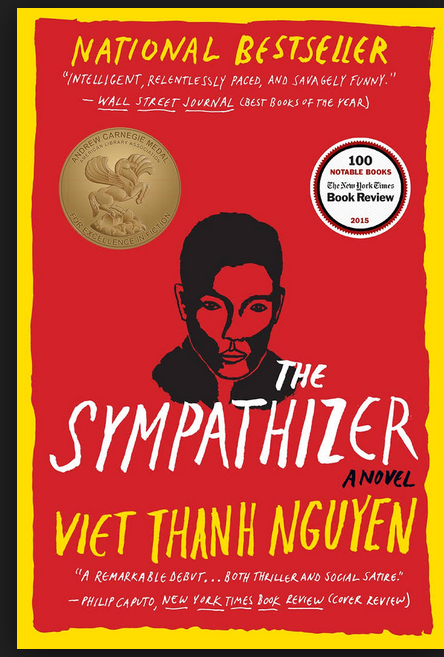 The Vietnam War was of my generation. I served in the Air Force in Texas 1968-1970. I recalled vividly the anti-war protesters of that time. There were many great movies about this war that I have seen which includes Apocalypse Now, Platoon and many others. I have met and spoken with refugees from Vietnam including those who identified themselves as “Boat People.” I have a rudimentary understanding of the French colonialism of Vietnam, the rise of communism, the war between the North and South, America’s entry into it and the ultimate withdrawal and the Fall of Saigon. I can’t say that this well-written book clarified this complicated political history to any great degree. In fact, it may have blurred the margins of some of the issues and muted my simplistic view of them. However, what this novel did provide for me was an insight into the personal viewpoints and struggles that many of the native players have gone through as they overtly and covertly battled each other for the heart and soul of this country.
The Vietnam War was of my generation. I served in the Air Force in Texas 1968-1970. I recalled vividly the anti-war protesters of that time. There were many great movies about this war that I have seen which includes Apocalypse Now, Platoon and many others. I have met and spoken with refugees from Vietnam including those who identified themselves as “Boat People.” I have a rudimentary understanding of the French colonialism of Vietnam, the rise of communism, the war between the North and South, America’s entry into it and the ultimate withdrawal and the Fall of Saigon. I can’t say that this well-written book clarified this complicated political history to any great degree. In fact, it may have blurred the margins of some of the issues and muted my simplistic view of them. However, what this novel did provide for me was an insight into the personal viewpoints and struggles that many of the native players have gone through as they overtly and covertly battled each other for the heart and soul of this country.
This is a story of revolution and counterrevolution. It occurred in an era of brainwashing, torture, hidden moles, intelligence and counterintelligence. I realized that one’s belief and loyalty to a particular political cause may very well depend on where you were born. But on the other hand, it becomes clear in this case that once the communist revolution succeeded in the North and then in the South, the so-called collective society itself became oppressive, corrupt and tyrannical. This is certainly one of the messages of this book.
This book was well researched and well written. In fact, it is the author’s style and way with words that entertains as well as educates the reader. While most of the sentences of this book were of average length, there was one somewhat lengthy one which will give you a taste of this book and the skill and style of the author:
We could not forget the caramel flavor of iced coffee with coarse sugar; the bowls of noodle soup eaten while squatting on the sidewalk; the strumming of a friend’s guitar while we swayed on hammocks under coconut trees; the football matches played barefoot and shirtless in alleys, squares, parks, and meadows; the pearl chokers of morning mist draped around the mountains; the labial moistness of oysters shucked on a gritty beach; the whisper of a dewy lover saying the most seductive words in our language, anh oi; the rattle of rice being threshed; the workingmen who slept in their cyclos on the streets, kept warm only by the memories of their families; the refugees who slept on every sidewalk of every city; the slow burning of patient mosquito coils; the sweetness and firmness of a mango plucked fresh from its tree; the girls who refused to talk to us and who we only pined for more; the men who had died or disappeared; the streets and homes blown away by bombshells; the streams where we swam naked and laughing; the secret grove where we spied on the nymphs who bathed and splashed with the innocence of the birds; the shadows cast by candlelight on the walls of wattled huts; the atonal tinkle of cowbells on mud roads and country paths; the barking of a hungry dog in an abandoned village; the appetizing reek of the fresh durian one wept to eat; and the sight and sound of orphans howling by the dead bodies of their mothers and fathers; the stickiness of one’s shirt by afternoon, the stickiness of one’s lover by the end of lovemaking, the stickiness of our situations; the frantic squealing of pigs running for their lives as villagers gave chase; the hills afire with sunset; the crowned head of dawn rising from the sheets of the sea; the hot grasp of our mother’s hand; and while the list could go on and on and on, the point was simply this: the most important thing we could never forget was that we could never forget.
Although I don’t think that this book would be at the top of my list, it did win a Pulitzer Prize. So if this subject is of interest to you, The Sympathizer should be worth the ride.
To obtain a copy of this book from Amazon, click here
Comment » | FH - Fiction Historical
September 4th, 2011 — 6:58pm
Buy now on Amazon: Witness to an Extreme Century: A Memoir
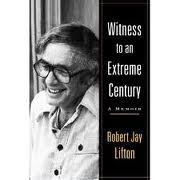 I had always wanted to learn more about the interesting work of psychiatrist Robert J. Lipton that I had heard about, but I never got around to reading his various books and other writings. This is the reason that I was pleased to embark upon reading this recent memoir. The author not only reviews his four main projects but he shares his recollections and feelings about the many people he has met along the way of his fascinating life’s work.
I had always wanted to learn more about the interesting work of psychiatrist Robert J. Lipton that I had heard about, but I never got around to reading his various books and other writings. This is the reason that I was pleased to embark upon reading this recent memoir. The author not only reviews his four main projects but he shares his recollections and feelings about the many people he has met along the way of his fascinating life’s work.
Lifton’s psychiatric training was interrupted by having to join the military as a physician during the Korean War. Although he was able to resume and even ultimately have some training at the Boston Psychoanalytic Institute, he never became a conventional psychiatrist or analyst. After spending sometime in Hong Kong Lifton became intensely interested what had become known as Chinese thought control. The Chinese communists had embarked upon what they had called a “reeducation” program aimed at indoctrinating everyone in the country but especially the educated and the young people to completely and without any question accept the sanctity of their leader and the validity of their doctrine.. Lifton’s technique of gathering data was to make contact with appropriate subjects and then hold open ended exploratory interviews. He used a trusted translator most of the time. He had made friends and contacts in Hong Kong who led him to meet various people from China who had been subjected to this mind control. A variation of this technique was applied to the Americans airmen taken prisoner of war by the Chinese in the Korean War. At that time the term “ brain washing” became popularly applied to what was being done .The techniques involved isolation, repetition of ideas, raising self doubts about old ideas. It was a relentless style of re-education which also included the encouragement of reporting to the authorities anyone known to rebel and not accept this new way of thinking. As Lifton saw the overall impact on Chinese society, he applied the term “totalism” to the complete penetration of this doctrinal thinking in all phases of living in China. Lifton was to also use this term when he studied other groups particularly the German people falling under the influence of Hitler. His suggestion that any group whether it be religious, political or even social which makes an all out effort to control the thinking of it’s potential followers should be identified as applying “totalism” to its efforts. He is very clear about the destructive nature of such thinking and the reader cannot but think how various modern day movements may be leaning in this direction.
While it is difficult to say which of his experiences had the greatest impact on him as they all obviously did and each embellished on the other. However, it seemed to me that his study of the survivors of the Hiroshima atomic bombing which he did when he was in his early 30s, emotionally penetrated deeper than anything he subsequently experienced and irreversibly changed him. Through his personal interviews with the subjects of his research, as a relatively young man he repeatedly encountered the meaning of death, destruction and mutilation. He appeared to feel their despair. While he intellectually understood and scientifically described the complicated grief and walking death that so many of the Japanese were to live throughout the rest of their lives, Lifton was transformed into a lifelong and very effective pacifist. Those of us who never had the emotional confrontation with the results of the A Bomb, might be able to accept President Truman’s decision to bomb Hiroshima and Nagasaki based on the calculation to save the lives of many thousands of Americans who would have invaded Japan. Lifton I believe, never raised this issue and appeared to believe in retrospect it had to be the wrong decision. He continues to bring a pacifist point of view to every relevant modern political and social issue of his time.
While I never met with anyone who went through anything approaching the magnitude of Hiroshima, my experience as a consultant to a major burn unit and having had some professional work in the aftermath of 9/11 gave me some perspective to to relate to his writing on this subject. However his decision to attempt to interview the Nazi doctors was “ mind boggling” to me, meaning that I had no frame of reference to this subject. Since this was his memoir, it probably was relatively short on the details of this work and conclusions which was covered in his earlier published work. But this book was relatively long on his personal reactions to the people with whom he met. His own perspective in approaching the Nazi doctors was as physican, psychiatrist, pacifist and a Jew. He seemed to have no trouble making the contacts and finding the surviving doctors who were willing to speak with him. In this memoir Lifton shares his struggle to understand whether these doctors were inherently evil people or whether circumstances might induce people to do terrible things to other people.
Lifton’s analysis and discussion of his experience in looking at the Viet Nam War and anti-war movement carried through to his comments on the U.S. war in Iraq. His reasoning and anti-war point of view is not simply founded upon his pacifist point of view but brings in a political and historical analysis. He also describes his interest in understanding post traumatic stress. He may have originated the term psychic numbing based on his earlier observations as well as those on the returning Viet Nam veterans. It is not surprising that he had great interest in understanding the My Lai massacre and raised once again how could descent people (in ths case the American soldiers) do horrifying deeds.
It was a special treat to learn about the many writers, historians and other intellectuals with whom Lifton interacted over the years. His personal discussions with people as diverse as Erik Erikson and Norman Mailer were recounted. Many of them took place at seminars he and his wife held at their summer home in Wellfleet. Betty Jean Lifton died shortly after her husband finished most of his memoir She was a writer mostly of children’s books but she shared his passion for psychohistory and their relationship is warmly reflected at many places in this book.
Comment » | AM - Autobiography or Memoir
 The Vietnam War was of my generation. I served in the Air Force in Texas 1968-1970. I recalled vividly the anti-war protesters of that time. There were many great movies about this war that I have seen which includes Apocalypse Now, Platoon and many others. I have met and spoken with refugees from Vietnam including those who identified themselves as “Boat People.” I have a rudimentary understanding of the French colonialism of Vietnam, the rise of communism, the war between the North and South, America’s entry into it and the ultimate withdrawal and the Fall of Saigon. I can’t say that this well-written book clarified this complicated political history to any great degree. In fact, it may have blurred the margins of some of the issues and muted my simplistic view of them. However, what this novel did provide for me was an insight into the personal viewpoints and struggles that many of the native players have gone through as they overtly and covertly battled each other for the heart and soul of this country.
The Vietnam War was of my generation. I served in the Air Force in Texas 1968-1970. I recalled vividly the anti-war protesters of that time. There were many great movies about this war that I have seen which includes Apocalypse Now, Platoon and many others. I have met and spoken with refugees from Vietnam including those who identified themselves as “Boat People.” I have a rudimentary understanding of the French colonialism of Vietnam, the rise of communism, the war between the North and South, America’s entry into it and the ultimate withdrawal and the Fall of Saigon. I can’t say that this well-written book clarified this complicated political history to any great degree. In fact, it may have blurred the margins of some of the issues and muted my simplistic view of them. However, what this novel did provide for me was an insight into the personal viewpoints and struggles that many of the native players have gone through as they overtly and covertly battled each other for the heart and soul of this country.
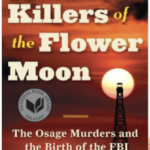
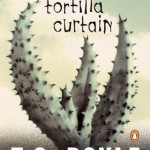
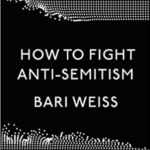
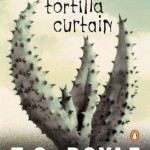
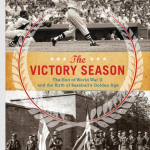
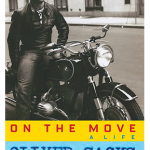
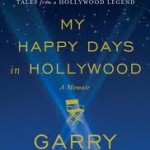

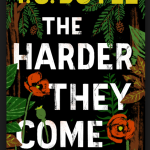
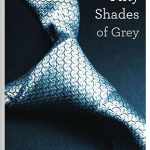



 I had always wanted to learn more about the interesting work of psychiatrist Robert J. Lipton that I had heard about, but I never got around to reading his various books and other writings. This is the reason that I was pleased to embark upon reading this recent memoir. The author not only reviews his four main projects but he shares his recollections and feelings about the many people he has met along the way of his fascinating life’s work.
I had always wanted to learn more about the interesting work of psychiatrist Robert J. Lipton that I had heard about, but I never got around to reading his various books and other writings. This is the reason that I was pleased to embark upon reading this recent memoir. The author not only reviews his four main projects but he shares his recollections and feelings about the many people he has met along the way of his fascinating life’s work.